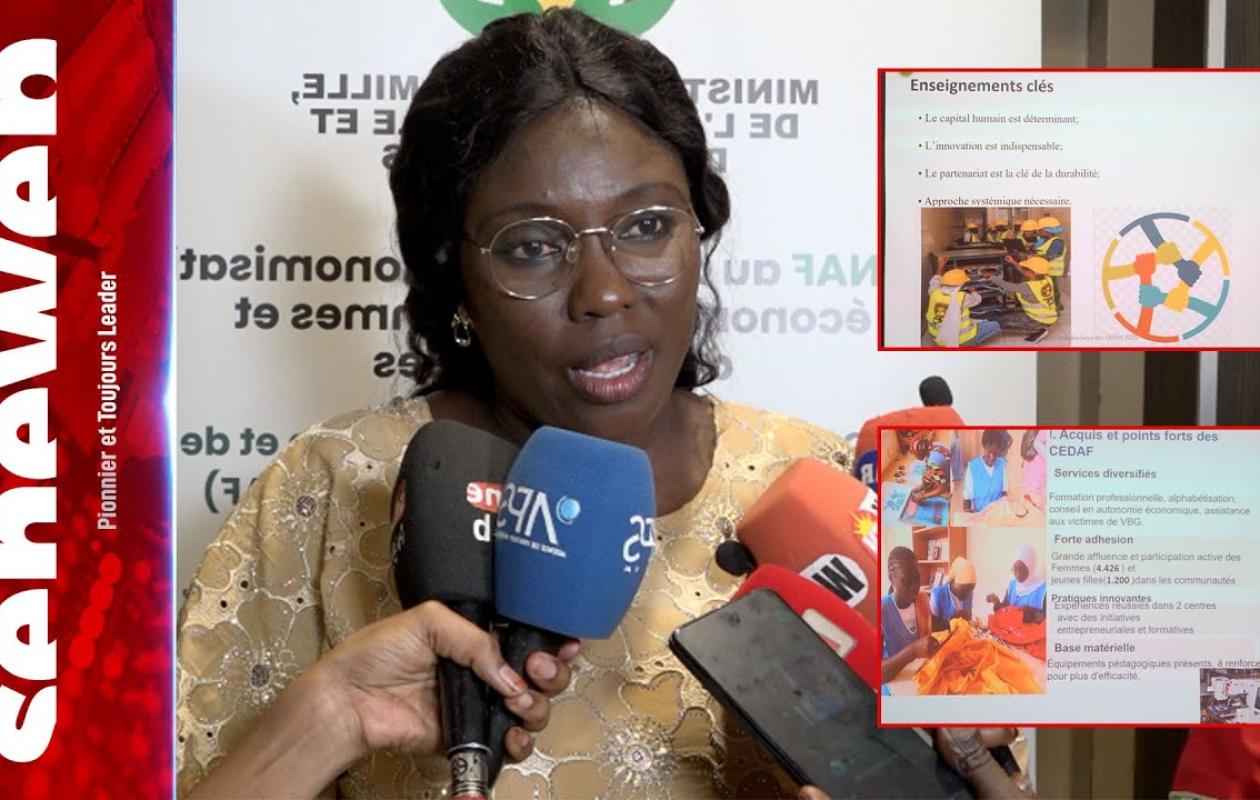
Ministère de la Famille et des Solidarités : Le CENAF plaide pour la modernisation des CEDAF au service des femmes
The Ministry of Family, Social Action and Solidarity (MIFASS), through the National Center for Assistance and Training for Women (CENAF), organized this Friday, September 19, 2025, a workshop to share the state of play of the 13 Departmental Centers for Assistance and Training for Women (CENAF)
A shared diagnosis for a renewed strategy
This meeting, which brought together the 13 CEDAF coordinators and CENAF agents, aimed to share the conclusions of the report resulting from the national co-production workshop organized from May 27 to 29, 2025 in Thiès. This process aims to redefine the service offering of these structures, which are essential for the empowerment of women, in line with the National Development Strategy 2025-2029.
In her speech, the director of CENAF, Ndèye Gnilane Faye, recalled that CEDAF represents essential levers for social inclusion, female employability and sustainable transformation in perfect alignment with national development priorities.
However, it highlighted several major obstacles hindering the full deployment of the potential of CEDAF, in particular the lack of qualified personnel, insufficient logistical resources, the absence of modern sectors adapted to market needs and a weak partnership network.
Despite these constraints, Ndèye Gnilane Faye welcomed the strong community demand, specifying that 4,426 women and 1,200 young girls benefited from the services offered by CEDAF in 2024.
Strong recommendations to relaunch CEDAF
To strengthen the impact of these centers, the director recommends the recruitment and ongoing training of staff, the modernization of sectors with the integration of digital technology, ICT and energy professions, the increase in financial and logistical resources, the structuring of a national CEDAF network, the strengthening of partnerships (NGOs, communities, private sector) and the establishment of an effective monitoring and evaluation system.
Commentaires (1)
Participer à la Discussion
Règles de la communauté :
💡 Astuce : Utilisez des emojis depuis votre téléphone ou le module emoji ci-dessous. Cliquez sur GIF pour ajouter un GIF animé. Collez un lien X/Twitter, TikTok ou Instagram pour l'afficher automatiquement.